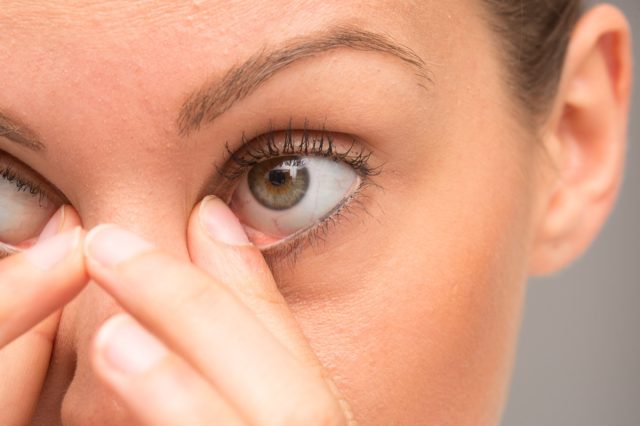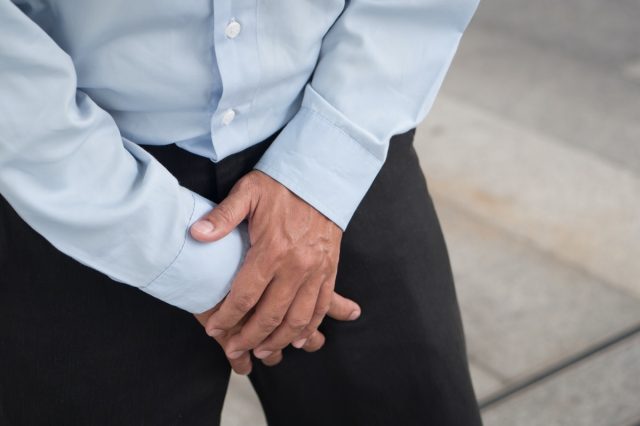The liver is one of the body's most crucial organs, responsible for detoxifying the blood, metabolizing fats and carbs, and producing essential materials that allow the body's other parts to function. If your liver isn't working properly, it can cause serious, even fatal, health problems.
Swelling

According to the Cleveland Clinic, fluid retention is the most common symptom of a damaged liver. It's experienced by about 50% of people with cirrhosis, the most severe form of liver disease, in which scar tissue replaces healthy liver tissue. Fluid retention can cause swelling in your arms, legs, or abdomen. It's caused when the liver no longer is able to produce albumin, a protein that prevents fluid from leaking out of the blood vessels and into tissue. That leaking fluid can build up in the ankles, legs, and abdomen, causing painful swelling.
Jaundice

Jaundice—a yellowing of the eyes or skin—is another common sign of liver damage. It happens when the liver can't optimally filter bilirubin, a natural chemical produced by red blood cells, from the blood. This can cause eyes and skin to take on a yellowish tone. "Jaundice is usually the first sign, and sometimes the only sign, of liver disease," says Johns Hopkins Medicine.
Dark Urine

Dark urine—it may be orangey, amber, or brownish—is another sign that a damaged liver has allowed bilirubin to build up in the blood. If you notice your urine is darker than normal, it's a good idea to contact your doctor ASAP.
Pale or Floating Stools

Some people with liver damage may notice changes in their stools. They may be lighter than normal, from yellowish to clay-colored, or even gray or whitish. This may indicate that a damaged liver is having trouble processing bile, which turns stool brown. Floating stools can be a sign that a damaged liver is no longer able to process fats optimally.
Abdominal Pain

The liver is located on the upper right side of the abdomen, behind and just below the rib cage. A damaged liver may swell, putting pressure on nearby tissues and causing pain. "Most people with liver disease report abdominal pain," says the Cleveland Clinic. This may feel like a dull, throbbing ache or stabbing sensation in your right upper abdomen, just under your ribs. Swelling from fluid retention (known as ascites) and enlargement of the spleen and liver caused by cirrhosis can also cause abdominal discomfort.
No comments:
Post a Comment